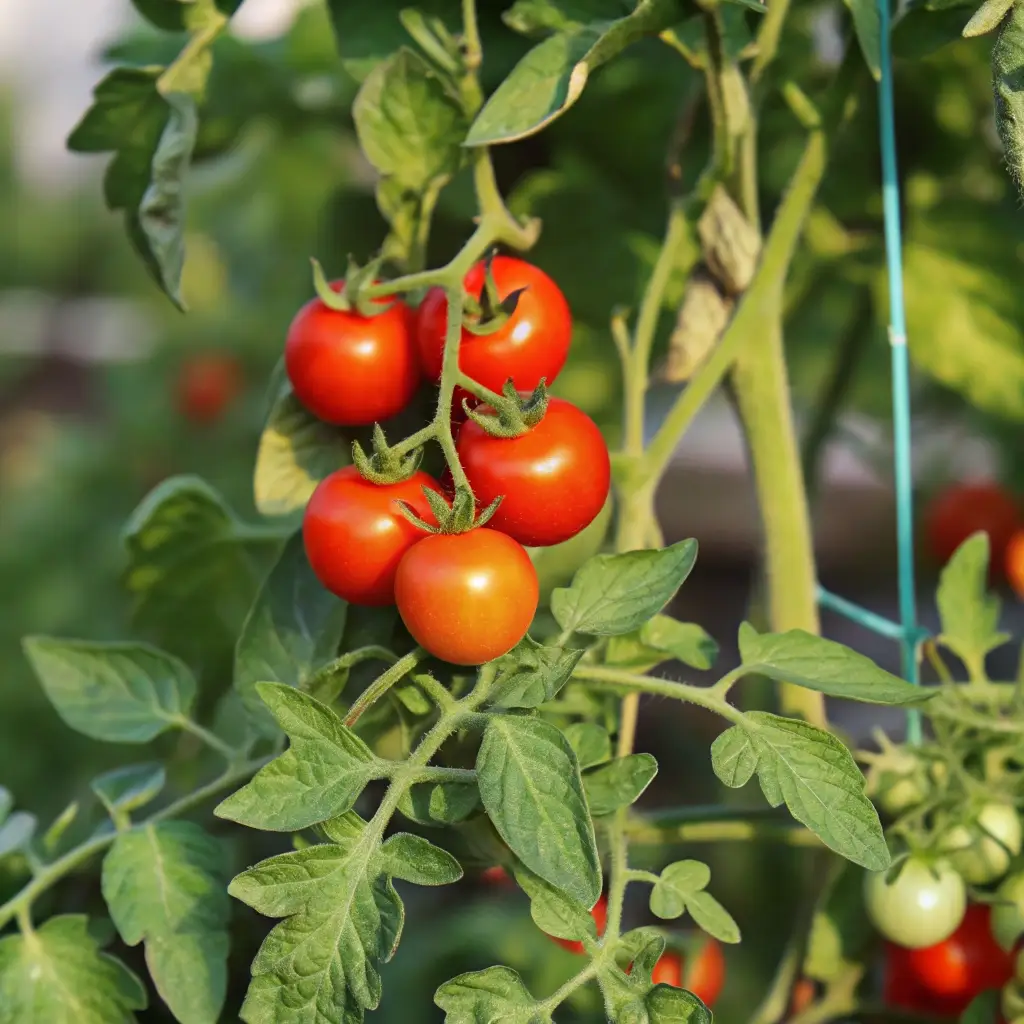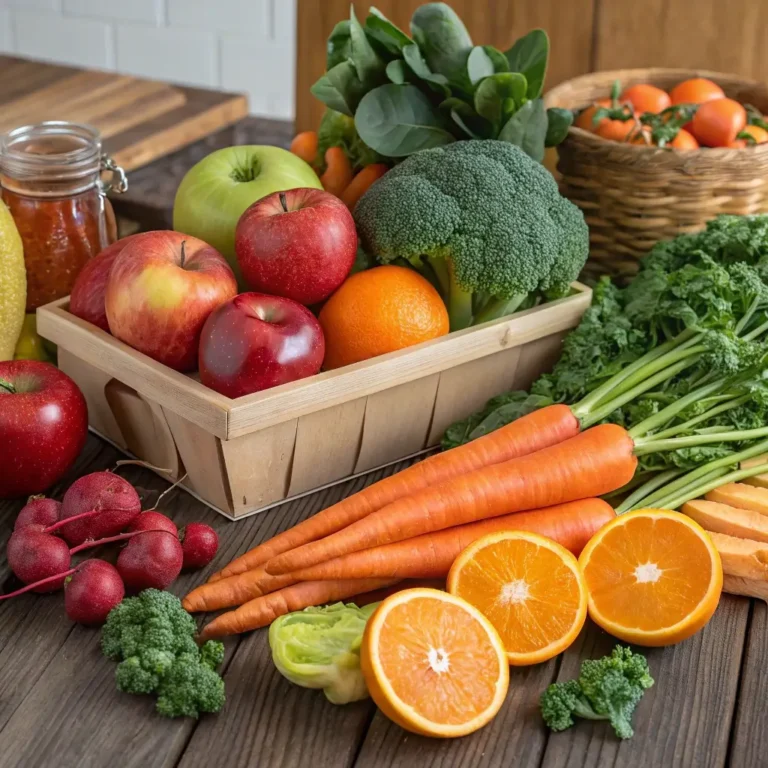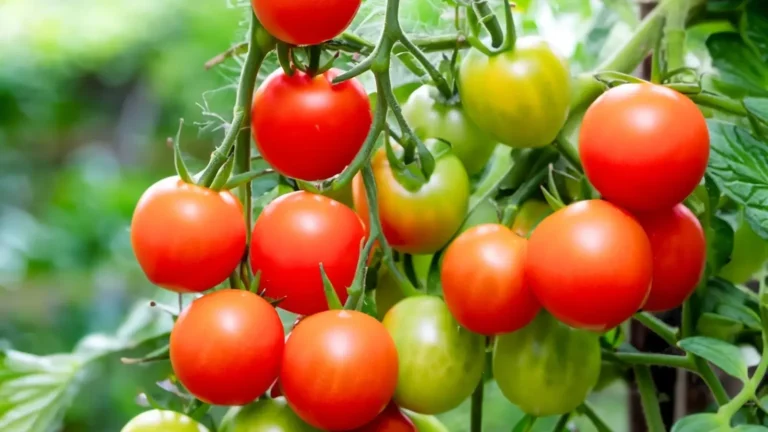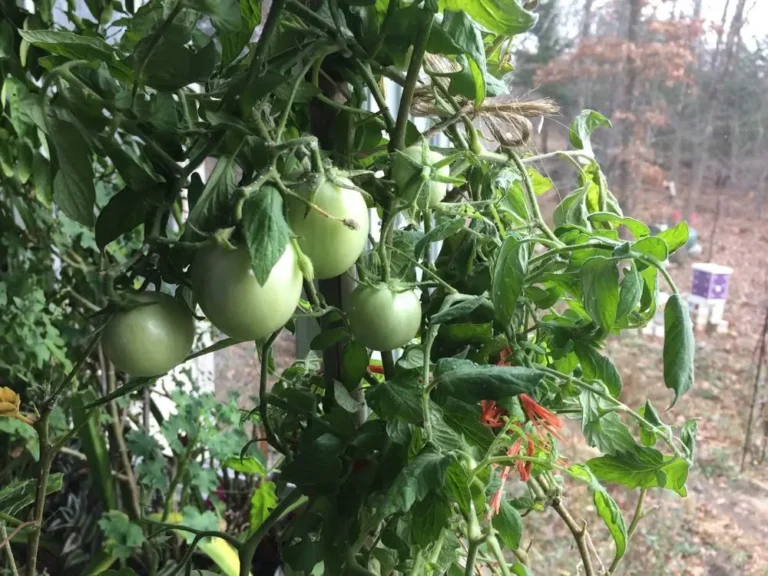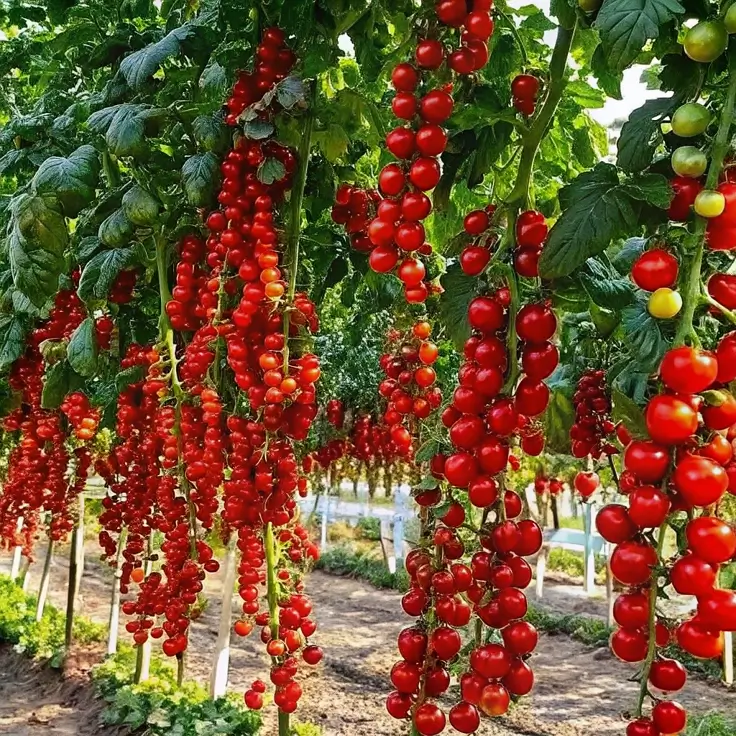10 Best Fertilizer For Tomatoes( Complete guide 2025): Top 7 Picks
Table of Contents
Introduction
Did you know that selecting the right fertilizer can increase your tomato yield by up to 40% compared to using generic garden fertilizers? Despite this significant advantage, an astonishing 68% of home gardeners still use improper fertilization techniques for their tomato plants. Finding the perfect balance of nutrients can transform your ordinary tomato harvest into an extraordinary bounty of juicy, flavorful fruits. This comprehensive guide breaks down everything you need to know about the 10 best fertilizers for tomatoes in 2025, focusing on the top 7 picks that professional growers swear by.
Tomatoes are heavy feeders with specific nutritional requirements that change throughout their growing cycle. Whether you’re a beginner gardener or a seasoned enthusiast, understanding which fertilizer to use and when can be the difference between mediocre and magnificent tomatoes.
Understanding Tomato Nutrition Needs
Before diving into specific products, it’s essential to understand what tomatoes actually need to thrive:
- Nitrogen (N): Essential for leaf and stem growth during early development
- Phosphorus (P): Critical for root development, flowering, and fruit production
- Potassium (K): Improves disease resistance and enhances flavor
- Secondary nutrients: Calcium, magnesium, and sulfur prevent problems like blossom end rot
- Micronutrients: Iron, manganese, zinc, and others for overall plant health
The ideal NPK ratio for tomatoes shifts from nitrogen-focused during early growth (higher first number) to phosphorus and potassium-heavy during flowering and fruiting stages (higher second and third numbers).
Top 7 Tomato Fertilizers for 2025

1. Espoma Tomato-tone 3-4-6 (Best Overall)
Why it excels: Espoma Tomato-tone provides an ideal balance of nutrients specifically formulated for tomatoes, with additional calcium to prevent blossom end rot.
Application rate: 3 tablespoons per plant at planting, then monthly throughout growing season.
Price range: $16-22 for 4 lbs
User satisfaction: 4.8/5 stars based on 2,800+ verified reviews
2. Dr. Earth Organic Tomato, Vegetable & Herb Fertilizer 4-6-3 (Best Organic Option)
Why it excels: Contains beneficial soil microbes and mycorrhizae that enhance nutrient uptake naturally.
Application rate: 1 cup per plant, worked into soil every 2 months.
Price range: $12-18 for 4 lbs
User satisfaction: 4.7/5 stars from over 2,100 verified users
3. Miracle-Gro Performance Organics Edibles Plant Nutrition 7-6-9 (Best Quick-Release)
Why it excels: Provides immediate nutrition boost with a balanced formula suitable for throughout the season.
Application rate: 1 tablespoon per gallon of water, applied every 7-14 days.
Price range: $9-14 for 2.5 lbs
User satisfaction: 4.6/5 stars from 1,900+ verified reviews
4. FoxFarm Tiger Bloom 2-8-4 (Best for Flowering & Fruiting)
Why it excels: Phosphorus-rich formula specifically designed to maximize flowering and fruit development.
Application rate: 2 teaspoons per gallon of water, applied every other watering during fruiting.
Price range: $18-25 for 32 oz concentrate
User satisfaction: 4.7/5 stars from 3,200+ verified users
5. Jobe’s Organics Vegetable & Tomato Fertilizer Spikes 2-5-3 (Best Low-Maintenance)
Why it excels: Convenient spikes slowly release nutrients over time, requiring less frequent application.
Application rate: 2-3 spikes per plant, replaced every 4-6 weeks.
Price range: $8-13 for 50 spikes
User satisfaction: 4.5/5 stars from 1,700+ verified reviews
6. Neptune’s Harvest Tomato & Veg Formula 2-4-2 (Best Fish-Based)
Why it excels: Fish and seaweed blend provides micronutrients and natural growth hormones.
Application rate: 1 oz per gallon of water, applied every 1-2 weeks.
Price range: $24-30 for 36 oz concentrate
User satisfaction: 4.8/5 stars from 900+ verified reviews
7. Down To Earth Organic Tomato, Vegetable & Herb Mix 4-6-3 (Best Sustainable)
Why it excels: Comes in compostable packaging with sustainable ingredients and balanced nutrition.
Application rate: 1⁄2 cup worked into soil at planting, 1 tbsp monthly afterward.
Price range: $14-20 for 5 lbs
User satisfaction: 4.6/5 stars from 1,400+ verified reviews
Application Timing
For optimal results, follow this timeline:
- At planting: Use a balanced, slow-release fertilizer worked into the soil
- 2 weeks after planting: First supplemental feeding with a balanced formula
- First flowers appear: Switch to a phosphorus-rich fertilizer
- During fruiting: Continue with phosphorus-rich fertilizer every 2-3 weeks
- Late season: Final application 4-6 weeks before first frost
Pro tip: Recent studies show that applying 25% less fertilizer but more frequently (every 10 days instead of every 14) can increase yields by up to 15% while reducing nutrient leaching.
Common Mistakes to Avoid
- Over-fertilizing: Too much nitrogen causes lush foliage but few tomatoes
- Inconsistent feeding: Fluctuations in nutrient availability stress plants
- Ignoring soil pH: Tomatoes prefer slightly acidic soil (6.0-6.8) for optimal nutrient uptake
- Forgetting secondary nutrients: Calcium deficiency leads to blossom end rot
- One-size-fits-all approach: Not adjusting fertilizer based on growth stage
Organic vs. Synthetic: Which is Better?
Research indicates that while synthetic fertilizers provide faster results, organic options improve soil health over time, potentially increasing yields by 12-18% after 3 seasons of continuous use. The best approach may be a hybrid strategy:
- Use slow-release organic fertilizers as a base
- Supplement with targeted synthetic products during key growth phases
- Gradually transition to primarily organic methods over multiple growing seasons
Conclusion
Choosing the right fertilizer at the right time can dramatically improve your tomato harvest. The 10 best fertilizers for tomatoes in 2025 offer solutions for every gardening style, soil type, and budget. By understanding your plants’ changing nutritional needs throughout the growing season and selecting products that address those specific requirements, you can enjoy a bountiful harvest of delicious, nutrient-rich tomatoes.
Remember that the perfect fertilizer regimen combines quality products with proper timing and application techniques. Start with our top recommendations, observe how your plants respond, and adjust as needed based on your specific growing conditions.
FAQs
Q: How often should I fertilize my tomato plants?
A: Generally, fertilize at planting, then every 2-3 weeks throughout the growing season. Reduce frequency to every 4 weeks when using slow-release fertilizers.
Q: Can I use ordinary garden fertilizer for tomatoes?
A: While general garden fertilizers will work, tomato-specific formulations provide better results as they contain the precise nutrient ratios and secondary minerals that tomatoes need.
Q: What causes my tomato leaves to turn yellow despite fertilizing?
A: Yellowing leaves may indicate nitrogen deficiency, but could also signal overwatering, disease, or pH imbalance. Check soil moisture and pH before adding more fertilizer.
Q: Is it better to use granular or liquid fertilizers for tomatoes?
A: Both have advantages: granular provides slow, consistent feeding while liquid offers immediate nutrition. Many experienced gardeners use granular as a base with occasional liquid feeding during critical growth phases.
Q: Can I make homemade fertilizer for tomatoes?
A: Yes! Compost tea, crushed eggshells (for calcium), fish emulsion, and diluted Epsom salt solution (for magnesium) make excellent homemade supplements to commercial fertilizers.

